Ready to drive incremental growth with influencers?
If ditching the randomness of influencer campaigns and building a predictable, ROI-first influencer program sounds like a plan. Consider talking to our team!

Finding Influencers
Save hundreds of hours by building one comprehensive influencer database for all your clients.
Contents
The smartest agencies aren't hunting for new influencers for every campaign.
They're building one massive database and slicing it in different ways for each client.
The same fitness influencer who promotes protein powder for Client A can create athleisure content for Client B.
If you're running an agency with multiple clients, or you're a freelance influencer marketing manager helping several brands, this approach will save you hours.
You'll have a list of vetted creators ready to activate across different campaigns and industries, instead of starting from scratch every time.
An influencer database is an organized collection of information about content creators your agency works with or plans to work with across your client roster.
This isn't the same as having influencer names saved in different spreadsheets or bookmarks on Instagram. Those are just scattered pieces of information.
A proper database tracks your creator's audience demographics, content performance metrics, past campaign results, rate history, etc.

The key difference is organization and searchability.
Your database should immediately answer questions like
"Who are our top-performing nano influencers for sustainable fashion who also create food content?"
or
"Which beauty creators have demonstrated strong conversion rates for products under $30?"
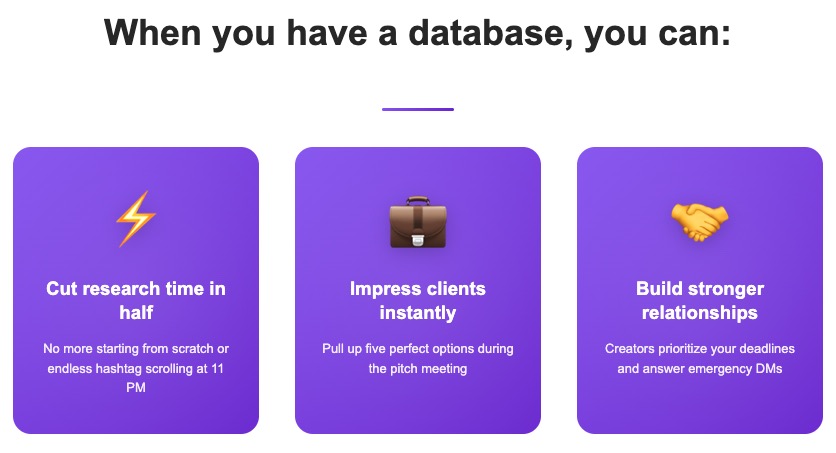
Building this database takes 2-3 weeks upfront, but you do this work once, and it pays off for years. Every hour invested now saves you 5 hours later.
Jovana Zuka, influencer marketing manager at Relish, puts it perfectly:
An organized influencer database is a massive time-saver. Instead of reinventing the wheel for every brief, we can tap into a roster of vetted influencers we already know are great brand fits by niche, category, budget, content style, turnaround time, and more. It cuts out the most time-consuming part, which is the discovery and outreach, so we can focus on briefing creators and delivering results, fast.
Most agencies never invest this time, which is exactly why they're always stressed and reactive. So, do the work once, reap the benefits forever.
Follow these steps to create a database that actually serves your agency instead of becoming another spreadsheet you ignore.
Here's what this looks like in practice:

Map the client categories that share the same target audience. Think about people, not products — who buys from multiple clients?
How to do this exercise at your agency
Here's how your industry mapping table might look at this step:
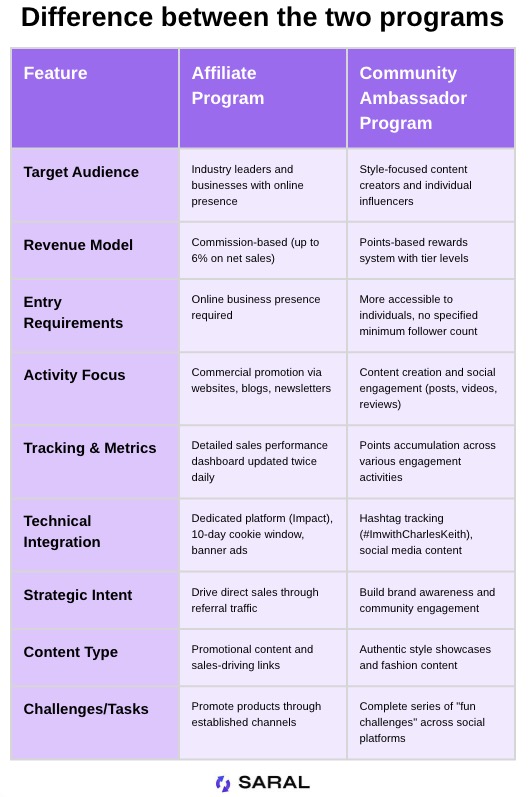
As an agency, you might think, "let me just buy a ready-made influencer database or get a marketplace subscription since I have multiple clients to split the cost." This is a trap.
Those databases are filled with burned-out influencers who've already worked with 20+ brands in the past six months. Your clients will get the same overused faces their competitors are using, and these creators often have zero authentic connection to the products they're promoting.
Instead, use these proven methods to build your proprietary database:
Search relevant hashtags across Instagram and TikTok to find creators in various niches your clients need.
Start with core hashtags like #skincare, then explore tangential ones like #morningroutine that work for multiple client categories. This connects you with thousands of creators.
For a detailed step-by-step guide, check out our complete guide on how to use hashtags to find influencers.
Or you can watch this video we recorded to walk you through each step of this process:
Go to your client's Instagram or TikTok profile and see who's following them. Look for profiles with decent followings who are genuinely engaged with your client's content. These people are already fans of the brand, making them perfect, authentic ambassadors.
For example, if your client is Graza (the olive oil brand, Btw, we did a deep dive into their influencer marketing strategy here) you can go to their IG profile, and you'll find many food-related influencers under followers:
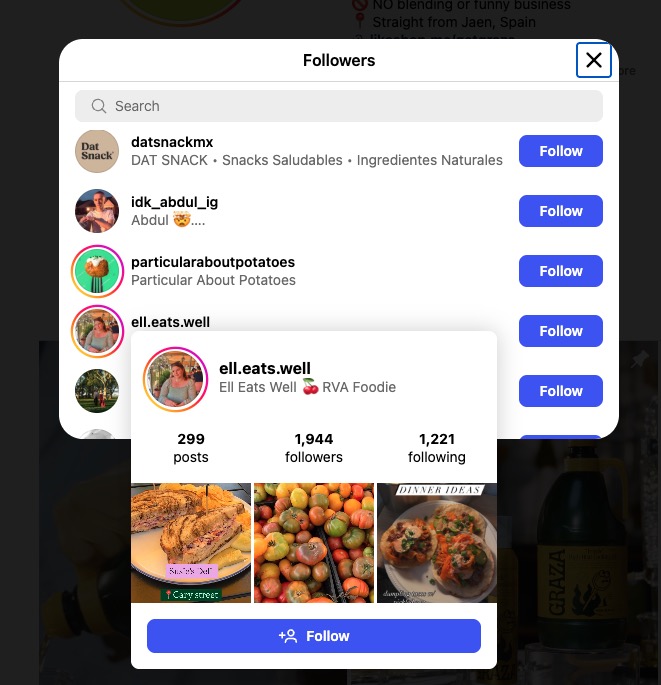
Check their profile using SARAL's free Chrome extension that shows their follower count, engagement, etc.
Don't just look at who competitors are partnering with. Check who's tagging them organically, commenting enthusiastically on their posts, or sharing their content. These engaged followers often have their own audiences and could work for your clients.
Let's say your client's audience is similar to Graza's. You can go to their posts, see who they tagged, or who's commenting on their posts. It's a bit of research, but it's free and will help you find people who might not surface in your searches.
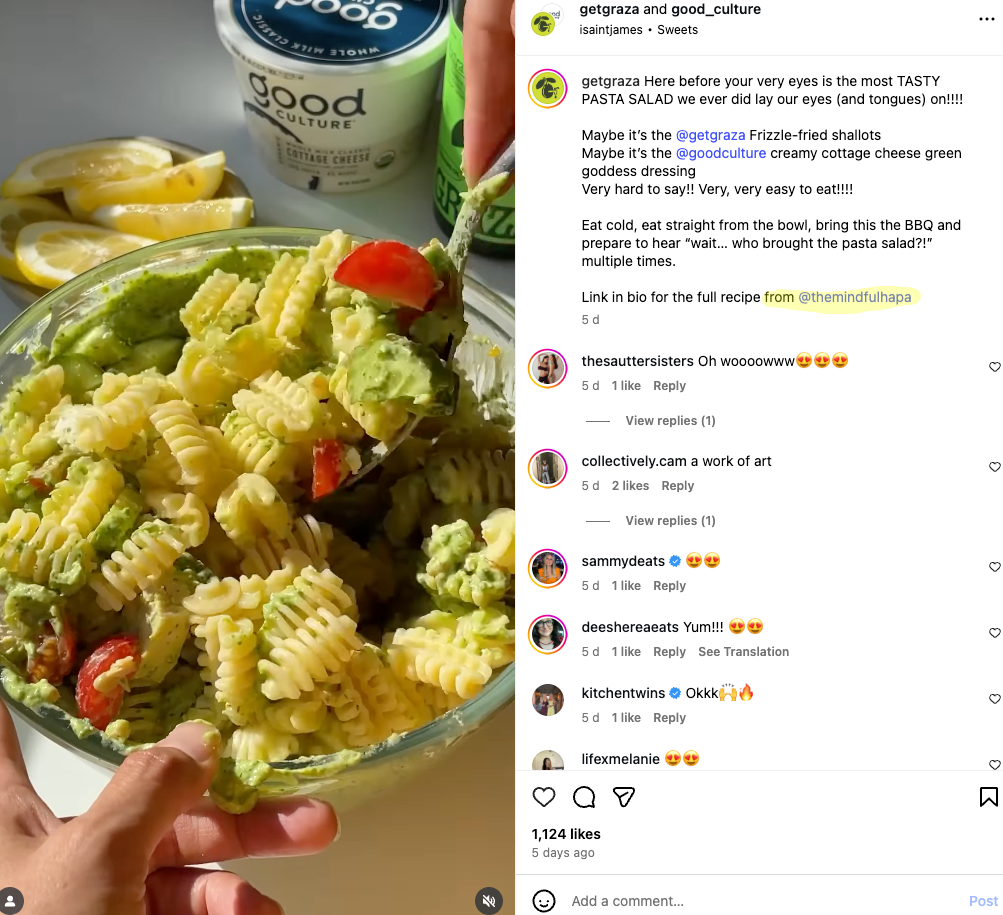
Instead of manually searching for hours, let the platforms find creators for you.
Follow 20-30 accounts that match what your clients need, then check the "suggested for you" sections daily. Instagram will start showing you similar creators, TikTok's "For You" page will surface relevant content, and YouTube will suggest channels in the same niche.
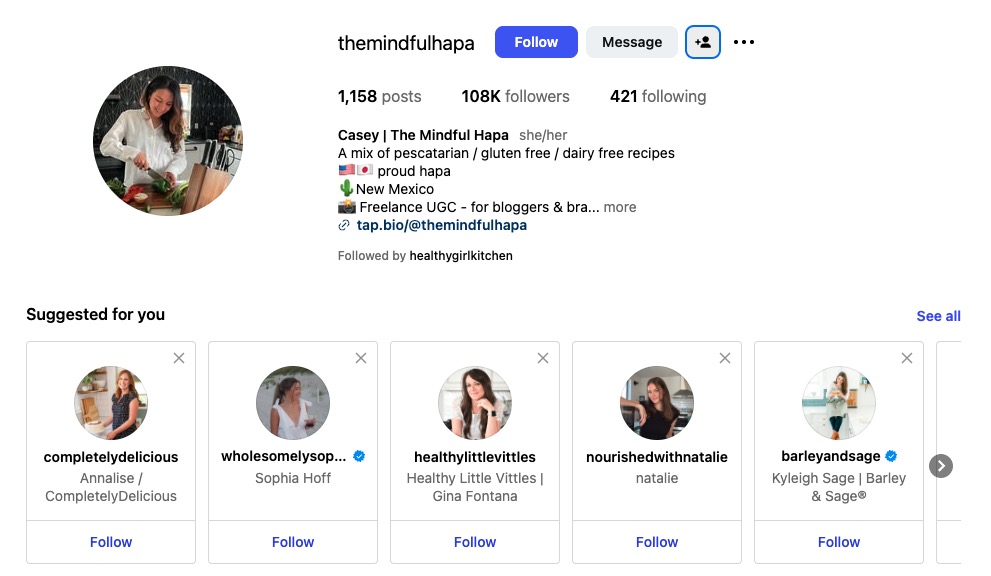
The platforms want to keep you engaged, so they'll keep feeding you more of what you're already looking at.
While these free methods work, they become unsustainable when you're managing multiple clients and need to move fast on briefs. Jovana Zuka sums up the problem agencies face:
Without a system in place, you're basically doomscrolling. A strategic database makes you more like a casting director with a trusted roster of talent, so you can cast the perfect fit for every client and campaign without wasting time.
But that can change when you use a purpose-built tool like SARAL.
You've seen the free methods above, but they come with some limitations. You'll spend hours manually searching hashtags, juggling multiple spreadsheets, and struggling to keep everything organized across different clients. The search results won't be consistent, and you'll constantly lose track of which influencers you've already contacted.
There's a solution that's actually built for finding influencers at scale: SARAL.
Here's how it works:
Go to the Discovery tab and select which platform you want to search on.
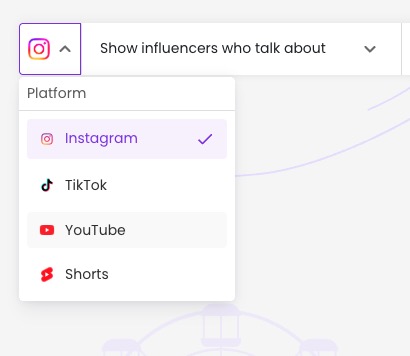
Then, select your search criteria. We have three options to choose from. Enter your topic (like "coffee" or "skincare") and SARAL will start finding creators for you.
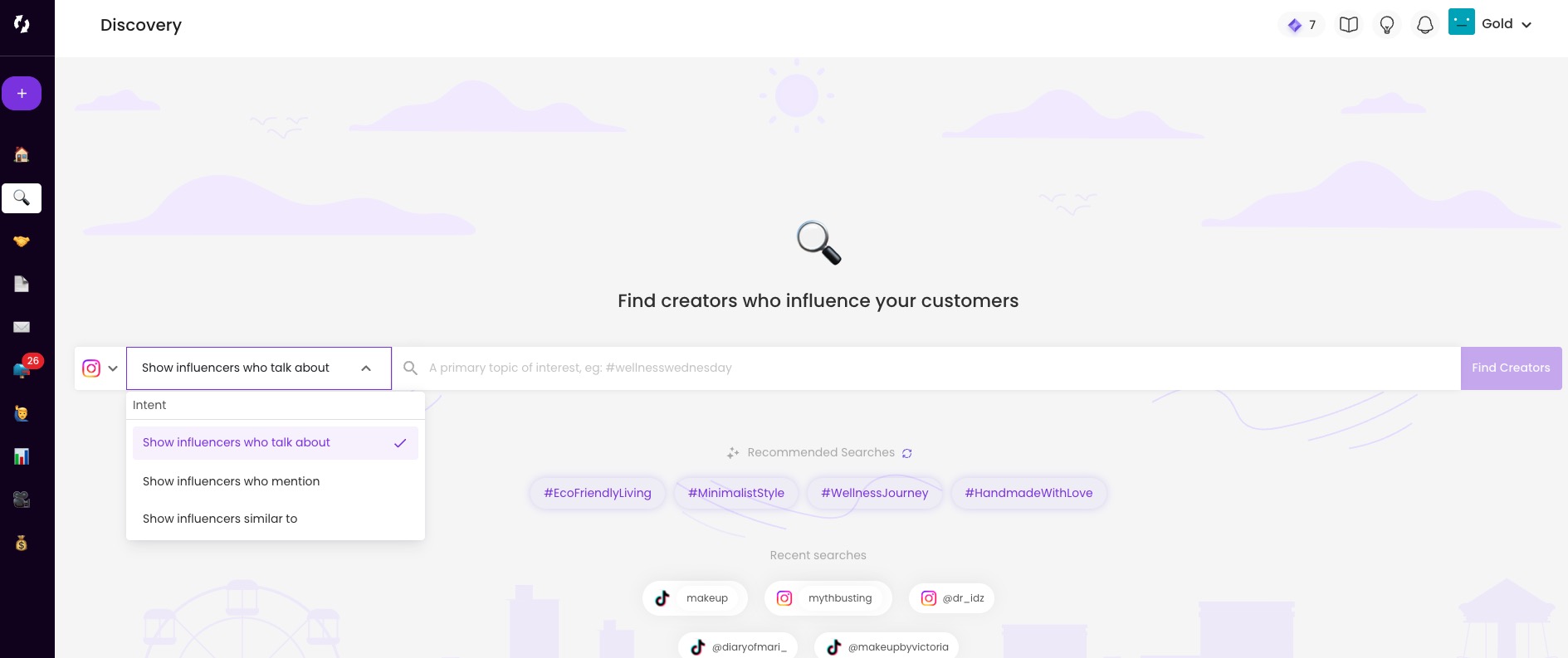
SARAL shows you a list of creators with key metrics like follower count, engagement rate, and estimated fair fee.
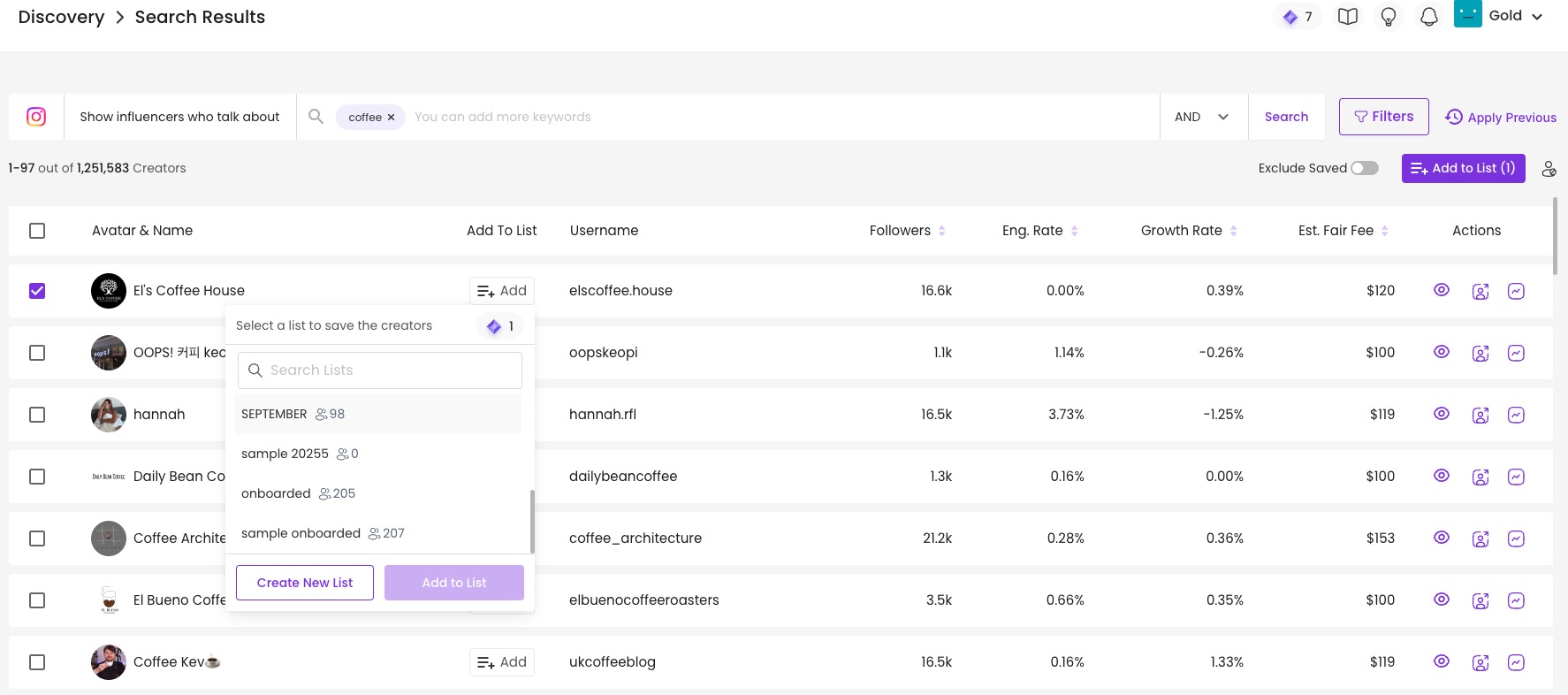
Use the filters to narrow down by location, follower count, or engagement rate, then click "Add" to save promising creators to organized lists.
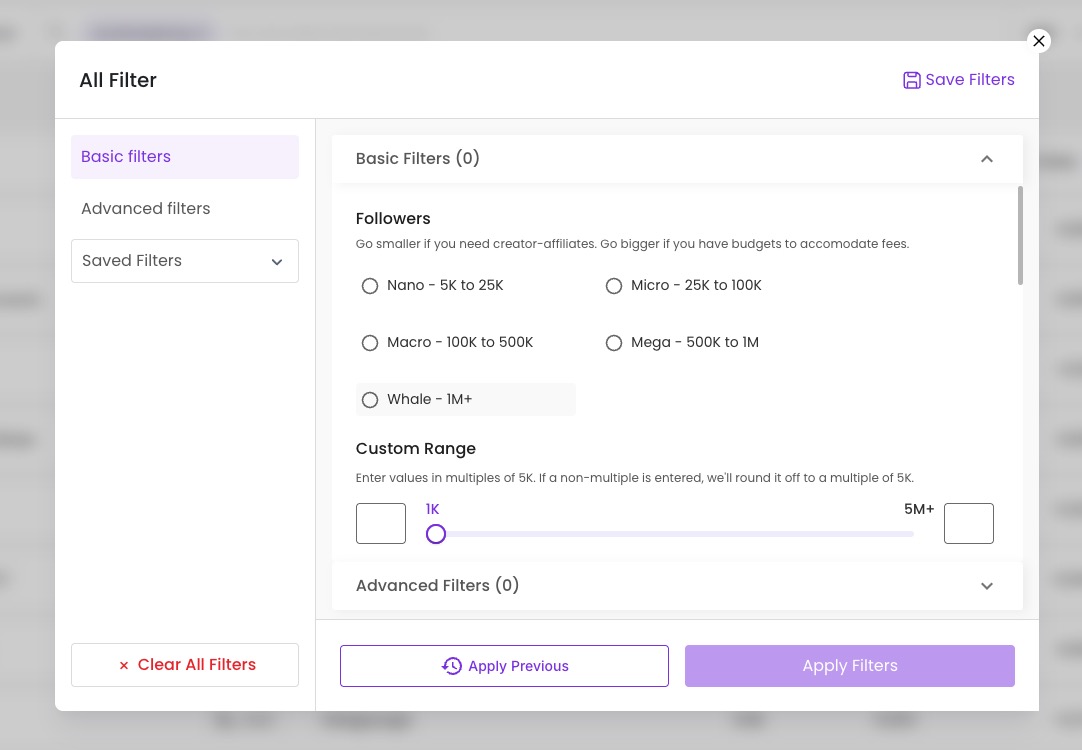
Augmentum Media transformed their manual spreadsheet process into a scalable system using SARAL, and now they manage 550 active creators for just one of their health and wellness clients.
"We've reached out to over 6,000 influencers through SARAL, seeded products to 1,900 of them, and now have 550 active affiliates posting regularly. The Relations tab in SARAL has been a game-changer for managing this kind of scale." ~ Sambhav Chadha, Co-Founder of Augmentum Media
Access your saved lists from the List tab, where you can see all your organized creators.

Click on any influencer to see their complete dashboard — past collaborations, email history, contact details, discount codes, and custom notes you've added about them.
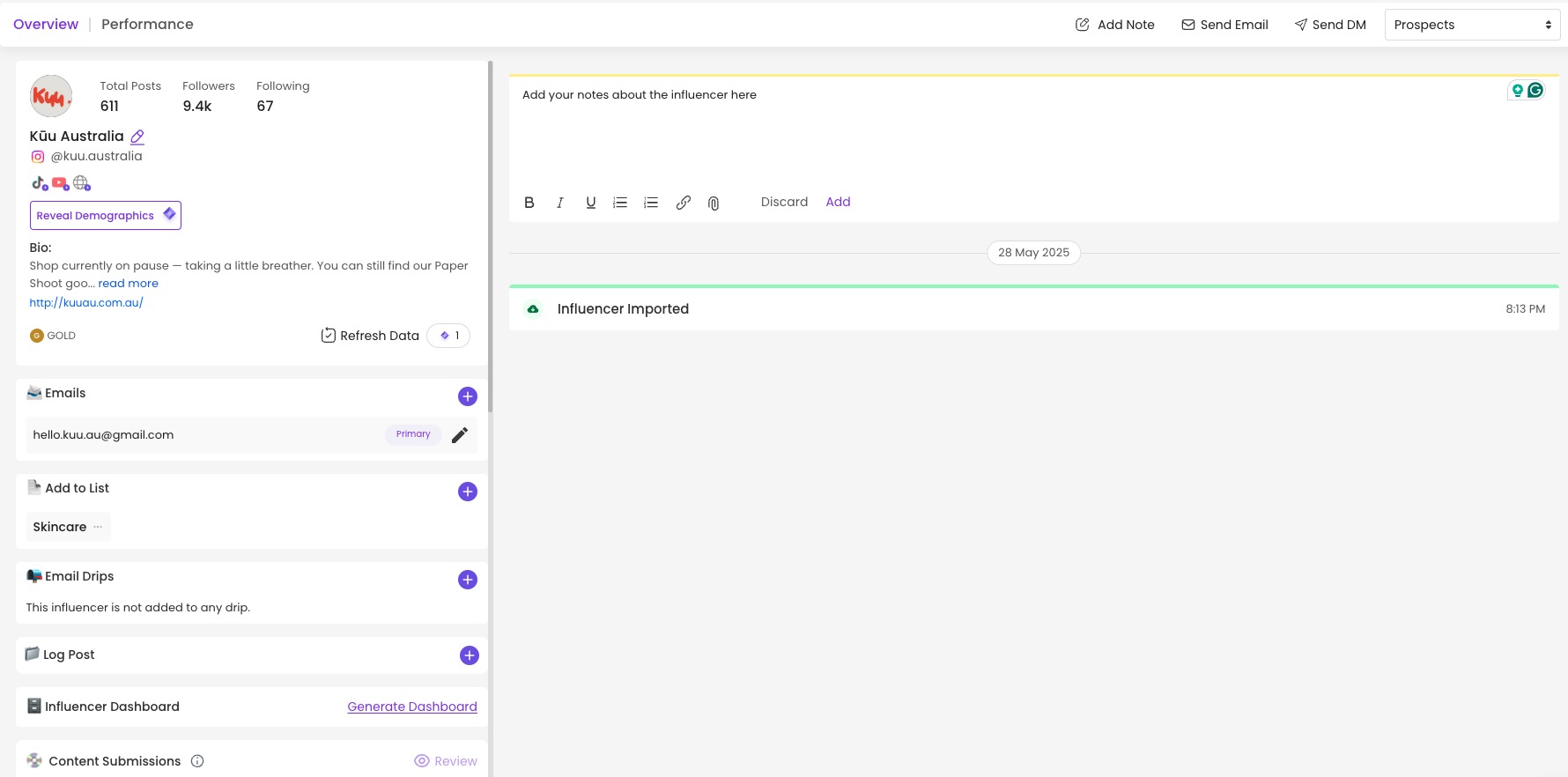
Sambhav, from Augmentum Media explains why having the right system matters:
Having a structured influencer database has been a game-changer for us at Augmentum. It enables us to respond to client briefs much more quickly, as we can instantly tap into relevant talent and segment creators by niche, performance, and past collaborations.Random creator lists lead to inefficiencies and inconsistent results. Without a centralized, up-to-date database, it's easy to lose track of conversations, previous activations, or key metrics, resulting in missed opportunities and wasted time.
If you're managing multiple clients and need to build databases efficiently, book a demo with us. We'll show you exactly how SARAL can help you with finding and managing influencers at scale.
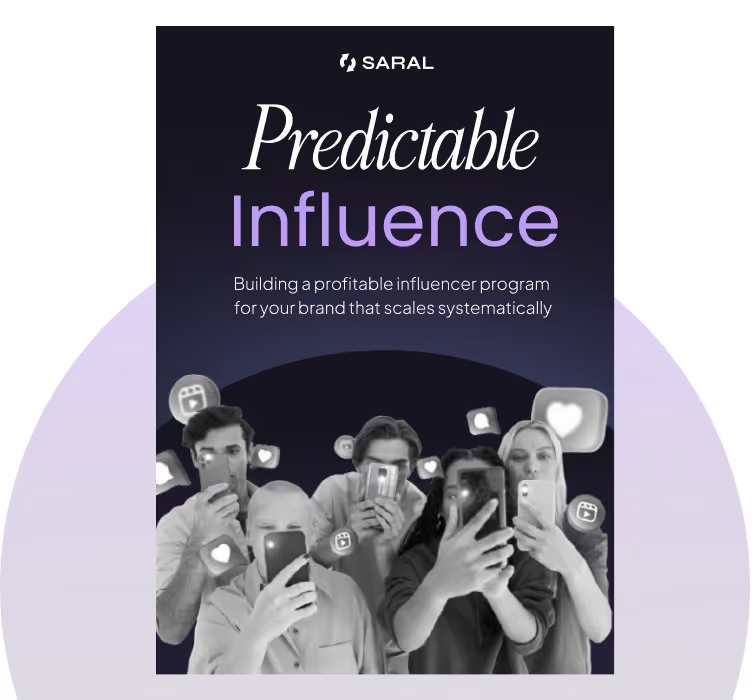
Sign up for a 7-day email course on the unique "Predictable Influence" strategy used by top brands like Grüns, Obvi, Tabs Chocolate.

If ditching the randomness of influencer campaigns and building a predictable, ROI-first influencer program sounds like a plan. Consider talking to our team!